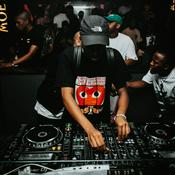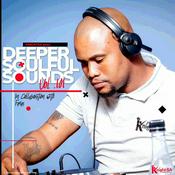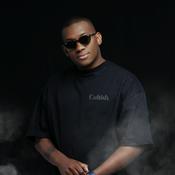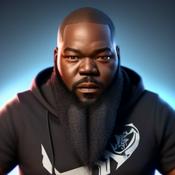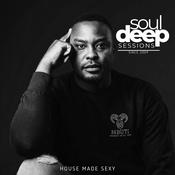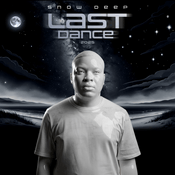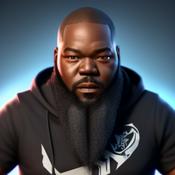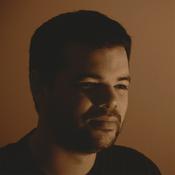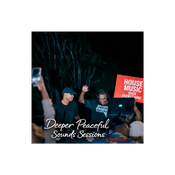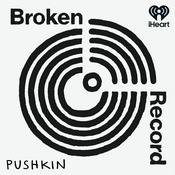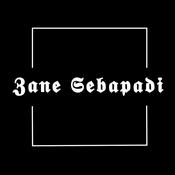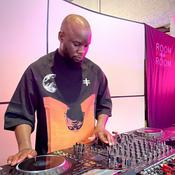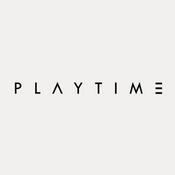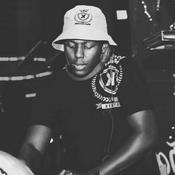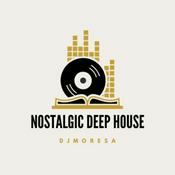587 episodes
- This is the final episode of A Deeper Listen. After seven years on air as the Sound & Vision radio show and more than 500 episodes in this podcast feed, Emily Fox and contributors share their favorite moments from a story or interview they’ve done for this show.
Support the show: https://www.kexp.org/sound/
See omnystudio.com/listener for privacy information. - Electronic artist SHIMA fuses dance beats with Japanese sounds on her debut album, Welcome to SHIMAJIMA. She talks with Emily Fox about how the history of Kamikaze pilots, and how a dancing hallucinogenic mushroom trip centuries ago inspired some tracks on her record. She also talks about creating an album for the culturally homeless and shares her journey from being a J-pop star, to a computer engineer to an indie DJ/producer.
Photo credit: Maxine Bowen
Support the show: https://www.kexp.org/sound/
See omnystudio.com/listener for privacy information. - For decades, Beverly Glenn-Copeland’s music went virtually unnoticed. Beginning in 1970, he released records that crossed folk, R&B, electronic music, and other genres, always seeking new territory. That changed in 2017, when his 1986 album Keyboard Fantasies was rediscovered, ushering in renewed interest in his work.
Since then, Glenn—who came out as a trans man in 2002—has toured and released new music for a growing, devoted audience. In 2024, however, he was diagnosed with dementia. While at first they thought this would be the end of his performing career, Glenn and his wife, Elizabeth Copeland, are returning to play a short run of Canadian dates and releasing a new album, Laughter in Summer, on Feb. 6 via Transgressive Records.
KEXP’s Dusty Henry speaks with the couple about returning to music in the face of Glenn’s diagnosis, the purpose and power of their work, and the love that binds them together.
“I always considered that the music that I ‘wrote’ was sent to me from a higher source,” Glenn says. “You can't do that if you don't work at your craft, whatever it is. But if you do, and there's something special about what you're doing, then you're going to get sent some amazing stuff.”
Photo credit: Wade Muir
Support the show: https://www.kexp.org/sound/
See omnystudio.com/listener for privacy information. - Toronto-based artist Kadhja Bonet recently released a short but powerful EP called Battlewear. Written just after Trump's re-election, it's a politically charged project that takes aim at tech giants, corporate greed, and streaming culture. Isabel Khalili speaks with Bonet about the rage and urgency behind the release, why she chose to leave Spotify and part ways with her label, her thoughts on social media, AI, and motherhood, and how stripping back her sound helped sharpen her message.
“They really want us to think that we are beholden to the system,” Bonet says. “But we are not. We actually have this capacity to break free of this and start our own organic communities.”
Support the show: https://www.kexp.org/sound/
See omnystudio.com/listener for privacy information. SELVE on new album and being the first Aboriginal-led band to record at Abbey Road Studios
2026/1/20 | 24 mins.Australian act, SELVE is the first Aboriginal-led band to record at Abbey Road Studios in London. The band recently released their second record, Breaking Into Heaven. KEXP Contributor, Celine Teo-Blockey spoke to frontman Loki Liddle about the strong Indigenous themes on the album and how returning to Country and speaking to his elders helped shape the writing process for this expansive pop-rock album.
Support the show: https://www.kexp.org/sound/
See omnystudio.com/listener for privacy information.
More Music podcasts
Trending Music podcasts
About A Deeper Listen
On A Deeper Listen, host Emily Fox and other storytellers from KEXP talk with artists about the stories behind their songs and the experiences that inform their work. Through each conversation, we uncover the humanity behind the music, allowing us to hear it in a whole new way.
Podcast websiteListen to A Deeper Listen, Stixx 100% Production Mix and many other podcasts from around the world with the radio.net app
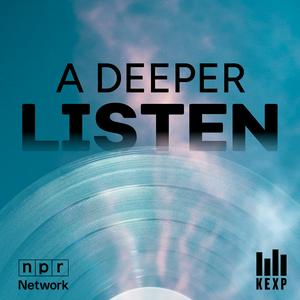
Get the free radio.net app
- Stations and podcasts to bookmark
- Stream via Wi-Fi or Bluetooth
- Supports Carplay & Android Auto
- Many other app features
Get the free radio.net app
- Stations and podcasts to bookmark
- Stream via Wi-Fi or Bluetooth
- Supports Carplay & Android Auto
- Many other app features


A Deeper Listen
Scan code,
download the app,
start listening.
download the app,
start listening.


